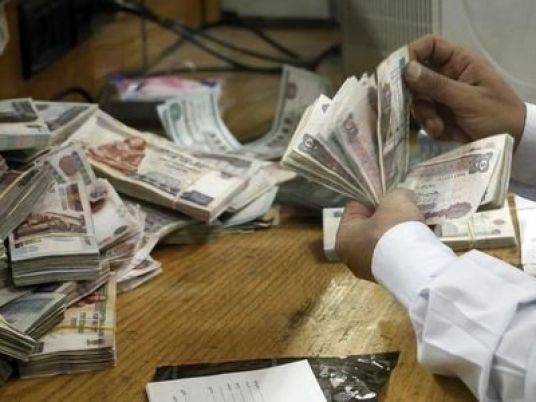
The central bank let the Egyptian pound depreciate for the first time in six months on Sunday, in what analysts view as a move to encourage investment by letting the pound reach a price that the market sees as fair.
After four years of turmoil, Egypt is trying to secure a nascent recovery by conveying an investor-friendly image in the run-up to an investment conference in March.
Letting the pound reach its weakest price since currency auctions began in December 2012 could be a way to boost market confidence in the most populous Arab country, while pressuring a thriving currency black market.
"Allowing the pound to gradually depreciate to what is perceived by the market as a fair value could promote inflows of foreign currency into the system and build-up of foreign reserves," said Monette Doss, senior economist at HC Brokerage.
The central bank says it sold 38.5 million dollars at a cutoff price of 7.19 pounds per dollar on Sunday, weaker than previous sales at 7.14 pounds.
Egypt began auctioning dollars in December 2012, which bankers saw as a possible controlled shift towards a free float. But two years later the central bank still plays a powerful role in supporting the pound.
The rates at which banks are allowed to trade dollars are determined by the results of central bank sales, giving the bank effective control over official exchange rates, though there remains an active black market.
The pound was changing hands at 7.84 to the dollar in the unofficial market on Sunday afternoon, but had strengthened to trade at 7.80 by the evening, one trader said. Traders quoted levels around 7.75 on Thursday, the previous trading day.
The bank's unexpected depreciation comes days after it surprised the market with a cut to its benchmark interest rates of 50 basis points.
The two moves in tandem are likely meant to maximise investment during the March conference by eliminating currency doubts and reducing the cost of borrowing, while buffeting Egypt's reserves, analysts said.
Egypt's foreign reserves have declined for two months, which economists see continuing due to low investments and no further aid expected from Gulf countries, Doss said.
A banker at an Egyptian lender said the depreciation was being perceived as a way to gradually price out black market traders.
The central bank introduced a fourth weekly dollar auction in December to curb the flourishing currency black market after the gap between official and unofficial rates widened.
The move has so far failed to narrow the gap substantially.




